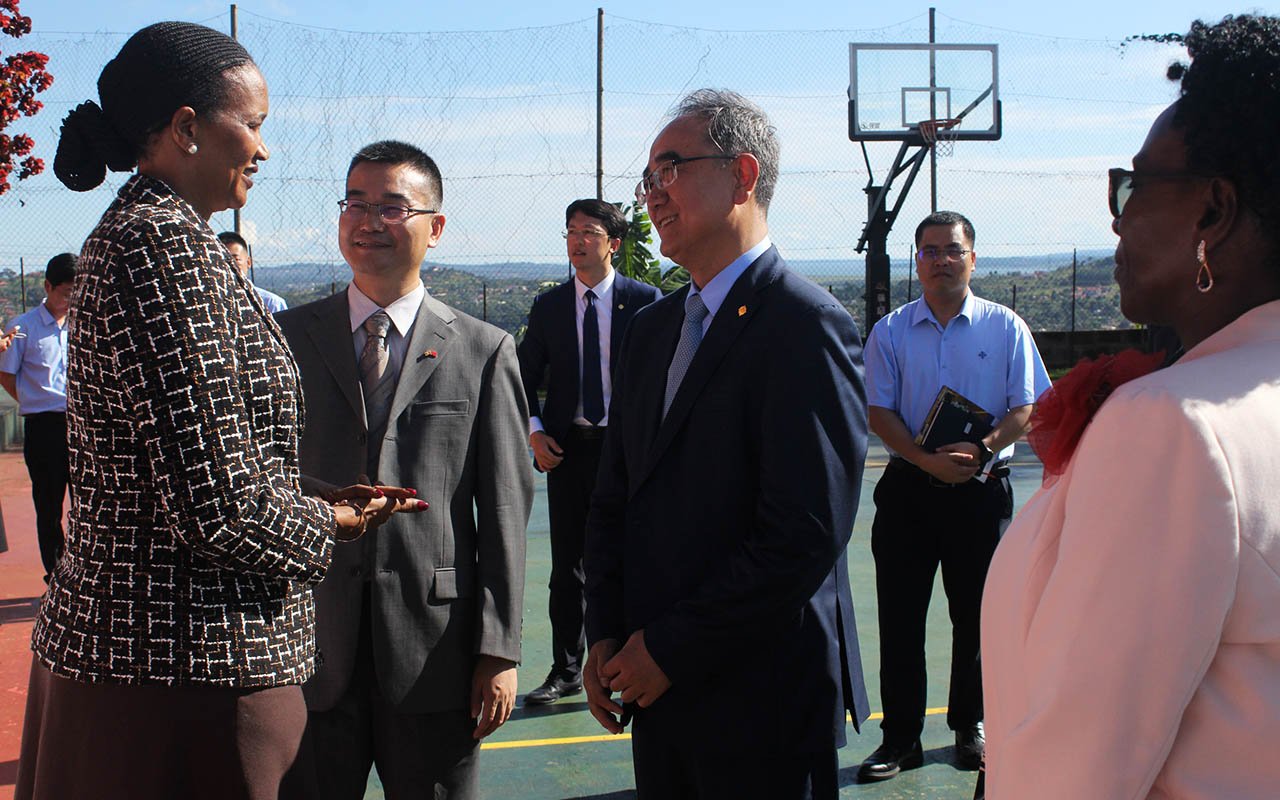Scholarships: Are you following the right website?

If a venture seems too good to be true, then there’s probably something wrong with it. This is a common saying and it is true, well at least in most cases. This saying and attitude should be adapted when one is browsing the internet for scholarship opportunities.
Many people look to the Internet as a source of opportunities for education funding especially to go abroad. For some lucky ones like Silas Byarugaba (not real name), all works out.
Successful applicants
Byarugaba, a bachelor’s degree holder had never thought of applying for further education until a workmate told him about scholarship opportunities that had just been posted on the Ministry of Foreign Affairs website.
Byarugaba, together with his colleagues visited the ministry. While there, they met with officials responsible for scholarships from the Middle East, Thailand, and Korea.
“They emailed us the application forms. All we had to do was fill in the forms, get recommended by our employers and then send them to the Ministry of Finance for the second recommendation and signatures and then forwarded to Korea International Corporation Agency (KOICA).” Byarugaba recounts.
In about a month, Byarugaba received a call for his first interview with KOICA and a week later, he was called by Pusan National University, the university he had applied to, for a second interview. Two weeks later, he received an email informing him that he had passed.
After fulfilling other requirements and steps, he started his one year and seven months journey of pursuing a Master’s degree in Global ICT policy.
Online fraud
Unfortunately, not everyone is as lucky as Byarugaba. For some, the search for scholarships for further education ends up in fraud.
Stilson Muhwezi, the second secretary at the department of consular services says there are many portals that are set up just to defraud the public.
“People these days forge a number of things. Some of them do it to get money, others are even linked to human trafficking.” Muhwezi warns.
Legitimate offers
Muhwezi says the Ministry of Foreign Affairs has short and long term scholarship offers from different countries and organisations. Short term trainings usually last from one week to six months and are majorly from countries such as India, Korea, and China. Then of course the long term ones that are usually undergraduate, masters’ degrees, PhDs and the like.
“There are countries such as Algeria that have had scholarships offers for a long time now and they send them to us every year. As the Ministry, we don’t normally go out in search of those scholarships, but they come in either through embassies or directly to the ministry.” Muhwezi says
Ministry of Education and Sports.
Both short and long term courses come through the ministry of Education and Sports. Most of these are from countries within same fellowships, unions and relations, for example countries under Commonwealth, African Union, among others.
Patrick Muindo, the spokesperson for Ministry of Education and Sports, says before a scholarship offer is uploaded on the ministry website, it is reviewed by the Department of Higher Education.
Therefore, if one is looking to apply for a scholarship, they need to read instructions from the Higher Education Department, which are always uploaded to the ministry website each time a scholarship offer is placed online. The website where postgraduate scholarships are uploaded is www.education.go.ug and the ministry’s homepage www.education.go.ug for other scholarships.
Apart from the two ministry websites, there are many other portals affiliated with organisations, universities, among others where legitimate scholarship offers can be found. To be sure that it is not a scam, simply look out for some common telltale signs.
Redflags
There are a few red flags that can help one detect whether a scholarship offer is legitimate or fake.
Payment
Scholarships that are genuine are not paid for especially at the application stage. If a website demands that one pay a certain amount of fees before they can apply then you should be wary. For rare cases where an application fee is required, it should be to the university but not the website managers. While some legitimate scholarships are fully funded right from the visa or ticket, some may require one to buy their own visa or ticket (that is only after your application has been approved).
Institutional email addresses
Fake websites can easily be pointed out. A serious website should provide an official email address to which applications can be sent.
“You can tell whether an email is from an official website or institution, or someone somewhere who sat at an internet café and crafted something in order to steal from people.” Muhwezi says.
What they offer sounds too good to be true
According to www.afterschoolafrica.com, if what they offer sounds too good to be true, then most times it is actually too good to be true.
How can a private scholarship agency tell candidates that they will provide free admission to the best universities in any country, visa support and processing, flight ticket, subsistence allowance, stationery and health insurance, free accommodation, free vehicles for mobility, monthly stipends, and a good job after graduation? All for free? If they had it so easy, they would make it happen for their loved ones first before putting it out to strangers on the internet.
When it looks so sweet, check it. Go online to verify their claims.




